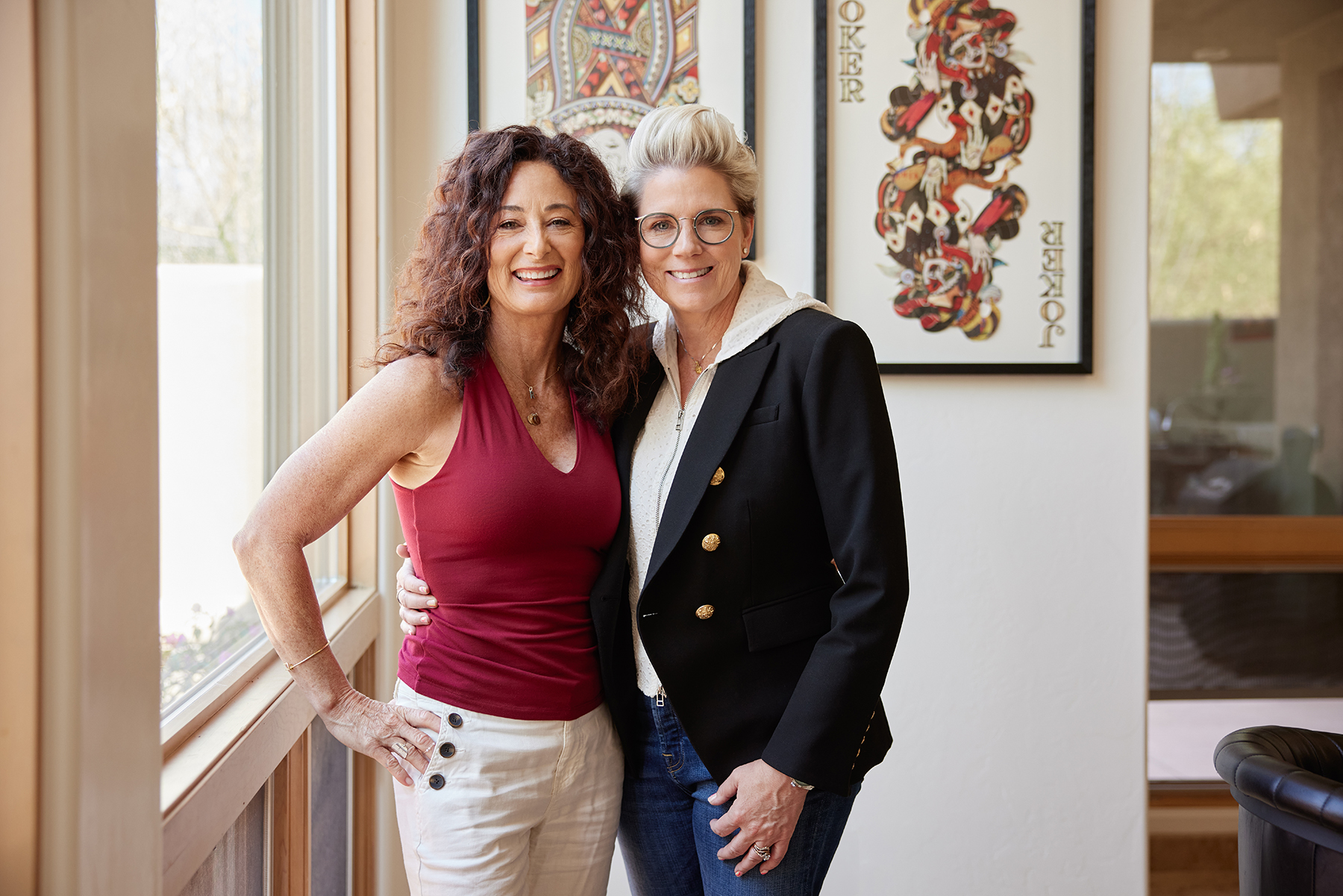
Affecting about a quarter of the United States, loneliness is linked to an estimated 100 deaths every hour — accounting for more than 871,000 lives lost annually. The disease touches more Americans than diabetes or obesity, which have been widely viewed as pressing threats to public health. Yet, large-scale efforts to mitigate loneliness’ effects are few and far between.
People often equate loneliness with being physically alone; however, that is not always the case. As my late stepdaughter Rylie taught me, the feeling of loneliness can stem from feeling like no one understands you, making it common amongst those you’d least expect. People like Rylie, who, despite having a solid support system of friends and family, don’t feel truly seen, or supported in full by society.
Rylie had struggled with her mental health throughout her youth, and after a particularly troublesome year that resulted in multiple inpatient hospitalizations, we regrouped as a family with Rylie to try and understand how she’d experienced such a steep decline, despite having strong lines of support within our family.
In that moment, she expressed to us that leading up to her spirals, she experienced intense loneliness, describing the feeling that “no one could possibly understand what she was going through,” which compounded into other areas of her life. When she told us this, my wife Anne (Rylie’s mother) and I were moved to learn more about loneliness, specifically through research into the healthcare system. We looked through every page — left no stone unturned in our hope to find a treatment for Rylie’s loneliness. There wasn’t anything out there for her, or the countless others experiencing similar despair — yet.
We found that little was actively being done to identify and address loneliness despite the fact that it seemed like a strong indicator of more serious negative mental and physical health effects. That gap in the market prompted us to create the concept for Pyx Health, a company that would focus on identifying and providing support and resources to individuals experiencing the negative health and social effects of loneliness.
In the earliest stages of the company, Rylie continued to shape our offering as one of Pyx Health’s first care coordinators. Drawing from the challenges she battled, overcame, and battled with again, she was able to connect with members, and act as a non-judgmental support system.
Rylie tragically lost her battle in 2021, but her memory continues to fuel Pyx’s mission and drives us to improve health outcomes for individuals like her who struggle with loneliness and other Non-Medical Drivers of Health (NMDOH), like safe, adequate housing and food insecurity.
Traditionally in American healthcare, we focus on medical barriers to good health, like chronic conditions and other ailments that may prevent us from making more positive lifestyle choices — like being unable to walk or eat certain foods. However, non-medical barriers like economic stability, education access, social and community context, and more are all of even greater importance, as they impact millions of people and drive continued systemic inequity.
What the system often forgets is that health isn’t shaped solely in exam rooms — it’s shaped in quiet moments that most of us never see, like a patient weighing groceries against gas for a doctor’s visit, a retiree choosing between rent and refilling a prescription, or a young adult carrying anxiety, unsure where to turn for help. Inequities of this kind resulting from poor NMDOH contribute significantly to healthcare spending and lost Gross Domestic Product. Studies estimate they account for 20 percent of the total costs of healthcare.
That’s where Pyx Health comes in — to support not only those who are lonely, but those who are disengaged from their healthcare systems for a variety of reasons and need tailored support to help get back on track in their health journeys.

Through Rylie’s struggle, Anne and I learned that when her feelings of loneliness set in, she detached from our family and her healthcare team, both of whom tried to engage and serve her as she spiraled out of control. However, we now know that it would have taken a much deeper level of communication to reach her at that point, and to get to the root of her struggle. This is a learning that we have used to inform Pyx Health's member experience. Rather than simply engaging through reminders or other static forms of outreach, Pyx Health seeks to activate its members through continuous connection, providing ongoing human-based support because no one gets better alone.
While loneliness is only one driver of poor health, it often goes hand-in-hand with a variety of chronic conditions, and can worsen existing symptoms while also increasing the risk of developing new ones. With links to depression, alcohol abuse, sleep problems, Alzheimer's disease and more, loneliness can create a potent barrier to good health both mentally and physically. And as the crisis rages on, Pyx Health aims to help those who lack a strong support system, by providing them with the necessary resources to move the needle in their healthcare journeys.
So how do we do it? With the knowledge that traditional engagement tools used in healthcare serve to raise awareness, but often fail to drive any meaningful behavioral change, Pyx Health takes a different approach to care. Leveraging our nationwide team of remote health care mentors and resource navigators, paired with our 24/7 user-centric mobile platform, we go beyond simple, transactional engagement to reach what Anne and I view as “activation” — where members are empowered by the support they receive to become actively involved in their healthcare journeys.
After consistently seeing food insecurity as the #1 reported need of our lonely members, we've added home-delivered food boxes as a tool to support and serve our members. And we've found it to be a unique and powerful way to build the trust we need to make a difference for our members.
These tools—our compassionate staff, thoughtful tech, and home-delivered resources—enable Pyx Health to step in at pivotal crossroads for its members — at kitchen tables, where they struggle to feed their growing families, or in other moments of stress that force members to decide between managing their chronic health conditions or paying their rent. Aiming to turn these cruel daily trade-offs into healthier patterns, we ultimately propel members into longstanding good health through activation.
Today, over 6 million covered lives are eligible for Pyx Health support via the health plan clients we serve, and we recently acquired FarmboxRx, a food-as-engagement company that is being integrated to not only offer nutritious food, but open the door to provide members the full breadth of resources and support Pyx can offer.
Ultimately, via the resources we provide, we are able to close gaps in care for members, prompting them to adhere to treatment plans, and gain confidence in managing daily health challenges - which can be life changing for vulnerable populations across America. Pyx Health’s meaningful activation of Medicare and Medicaid members has been shown to reduce loneliness by 70% and depression 54%; and members self-report an 18.5% decrease in “Unhealthy Days per month” via CMS’ Health Outcomes Surveys (HOS). And our home-delivered food boxes have been shown to yield a 53% higher rate of engagement in gap closure programs than digital solutions alone.
While Pyx Health began with the goal of helping people like Rylie, and with the mission of ending the loneliness epidemic, our offer to our members and the market has evolved over time. We're using what we've learned about connection to go beyond engagement to activation and setting new standards for resource and care delivery. And we're just getting started.
As we continue to grow along with the needs of the Medicaid and Medicare members we serve, we aim to cement Pyx Health as a meaningful companion in each and every one of their health journeys, and as a trusted source for stronger health literacy and high-quality resources that will ultimately help them reach improved wellbeing.
To learn more visit: https://www.pyxhealth.com/